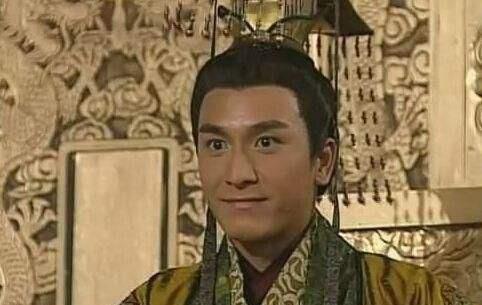Saving money is a necessity for ordinary people, and it is a habit that is easily addictive to some local tycoons. Tang Dezong Li Shi had this kind of habit, and even went crazy.
It is said that at that time, the "transformation is the state", the emperor lacked money from the treasury, but from the beginning of Tang Xuanzong, the royal still built a small treasury, that is, the "Qionglin Treasury", and later felt that it was not enough, and built a "Daying Treasury" - one put silk silk, one put gold and silver treasures, mainly for the emperor to reward his subordinates or private purchases. These two small vaults passed into Li Shi's hands and became the source of his happiness.

Four years after Li Shi ascended the throne, there was the "Jingyuan Mutiny", and soldiers from all over the world were sent to Beijing to prepare for the qinwang. Li Shi invited the people to dinner, but only took out a little shelled rice and vegetables, which annoyed the soldiers, and they turned against the palace and besieged the palace. After Li Shi escaped, the soldiers ransacked the two small treasuries of the legend, and the citizens of Chang'an also participated in it, and only a small part of them were snatched until dawn.
The next day, the lieutenant Zhu Zhu usurped the throne as emperor and stayed in Chang'an for nearly a year, using the property in the small treasury to keep the new government running, while rewarding the soldiers and squandering it, but he did not spend the money until the fall.
After Li Shi lost the vault, his heart was like a knife, and he always wanted to save the money back. During the exile, the days were very difficult, the soldiers did not even have to change their clothes, and it was difficult for someone to pay tribute, but Li Shi piled the tribute in the corridor and put up a sign next to it, which read "Qionglin Dayingku" and declared private ownership. Minister Lu Yan felt inappropriate and said that it was not appropriate to save money now. Li Shi also felt that he really should keep a low profile, so he took off the sign, but the soldiers still did not get half a cent.
After the end of his exile, the world was temporarily at peace, and Li Shi returned to Chang'an and started the plan to save money again. He carefully saved three years and did not have much before, so he complained to Prime Minister Li Bi: "In previous years, the tribute of each district road was 500,000 strings of money, but this year there are only 300,000 strings of money, which is really not enough to spend." Li Bi had no choice but to agree to arrange for the government to allocate 1 million strings of money to him every year in the future, and hoped that he would not ask for money from various districts again.
Li Shi knew that this kind of behavior was unpopular, so he agreed, but only went from public to underground. The following year, Yuanyou, the official in charge of taxes in Henan, Jiangnan, and Huainan, returned to Beijing, bringing back a large amount of gold, silver, and cloth, and made a perfect payment to Li Shi. Li Shihuan deposited them all in the Great Ying Treasury, and sent eunuchs to take the Holy Will to various places to ask for money and goods, and at the same time instructed all the local officials who received the Holy Will, "Don't let the Prime Minister know about this!" This matter eventually reached Li Bi's ears, but at this point, he could only pretend to be deaf and dumb.
After Li Bi died, no one could stop Li Shi anymore. He not only openly asked officials for money, but also had people go to the market to grab things. He promoted a minister of the exchequer named Pei Yanling, who said to him at the beginning of his term of office: "Through the inventory of accounts, I found that there were 200,000 pieces of money that had not yet been recorded in the account, and I asked His Majesty to deposit this money into another vault for His Majesty to use at any time, and there would never be any shortage." Soon after, he said to Li Shi: "Many of the treasures collected in the imperial court warehouse have been lost, and recently I received 130,000 taels of silver in the dung soil, as well as silk and other items worth more than 1 million yuan, and these treasures have not been recorded in the account, and should be counted as savings, and should also be transferred to His Majesty's treasury." ”
The Jingyuan mutiny almost cost Li Shi his life, but he still couldn't change the problem of "sacrificing his life and not giving up his wealth." Later, the forbidden army was short of food, and the soldiers were so hungry that they mutinied, and he was still reluctant to pay the army. At this time, the Jianghuai region happened to send 30,000 stone rice, and Li Shi said happily to the prince: "There is grain, and our father and son can live." "The price of transporting rice from the Jianghuai region to Beijing, plus freight, is as high as 350 yuan per bucket of rice, while the price of each bucket of rice in the Beijing market is only a few dozen yuan." But Li Shi preferred to sit and wait for the mutiny rather than use "private money" to buy rice for the imperial court. Greedy for money to such a point, Li Shi can also be regarded as "smiling proud" of ancient and modern times.